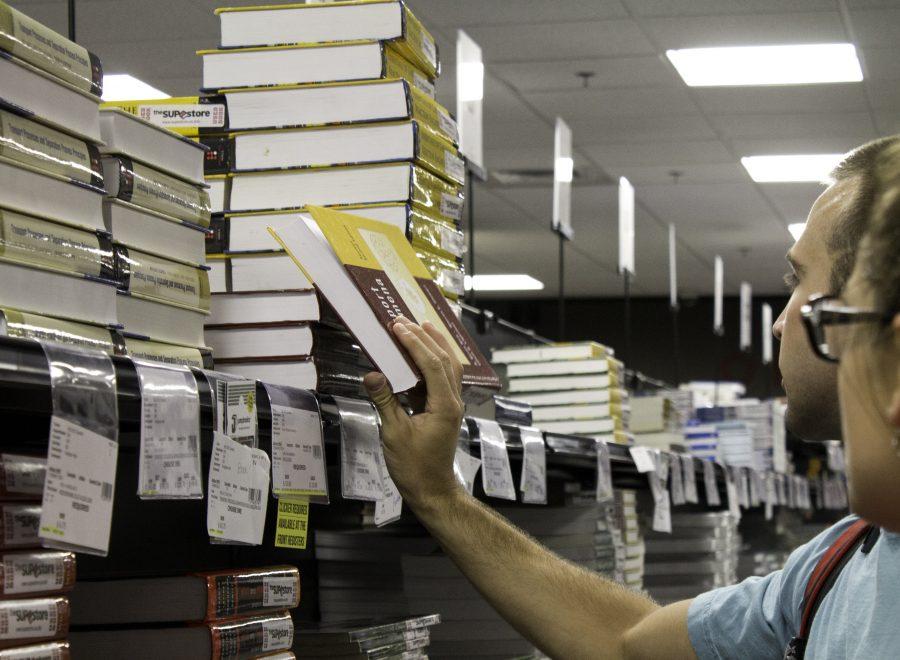After multiple questions were raised regarding an open textbooks proposal at Thursday’s Senate meeting, one issue has been resolved – University officials have indicated that there are no contractual obligations that might have otherwise impeded the implementation of open textbooks.
Last Thursday, the SGA senate met and discussed a bill that would bring “Open Textbooks” to the University. Michael Smith, a sophomore majoring in economics who authored the bill, answered questions about his plan for almost an hour at the meeting.
Ross D’Entremont, a sophomore senator majoring in finance and political science, asked a total of 32 questions about Smith’s bill. One such question dealt with his concern of contractual issues that may arise between the University and textbook companies should Smith’s bill pass.
Chris Bryant, the University’s interim director of Media Relations, told The Crimson White that after looking through the University’s records, he found no indication of textbook contracts.
D’Entremont said his concern of contract problems stemmed from what happened with last year’s SGA program known as Bamazon. The program allowed for students to receive one day shipping from Amazon, and a portion of the money spent on the website would go towards funding University scholarships.
“When Bamazon last year was a project that was, you know, making great strides and all of a sudden it was scrapped,” D’Entremont said. “It was from my understanding [that] there was a contractual issue [inaudible] between Amazon and the SupeStore.”
D’Entremont said although he is in favor of lowering textbook costs, he wanted to make sure that SGA had all of its bases covered.
D’Entremont also expressed worry about what could happen to prices at the SupeStore should open textbooks be allowed.
“My concern is that ‘let’s say we save students on the front end this money, but then later on for textbooks that can not be open textbooks the SupeStore has to skyrocket the price,'” he said.
Smith said he went through the University’s public contracts and found none regarding textbooks. He said because of this, he wasn’t entirely sure what D’Entremont meant by “contractual issues.”
“I am glad that Senator D’Entremont brought it up because I appreciate the willingness to make sure that we’re not messing anything up as an SGA,” Smith said. “I talked to the director of the OpenStax program over at Rice University, and she said that there have been no issues with the 23 or so universities they work with.”
The Open Textbooks legislation must be reviewed by the senate’s Academic Committee before it is voted on.
(UPDATE 9/1/2016: The version of this article previously available did not reflect edits added prior to its publication. Those edits have been made.)









